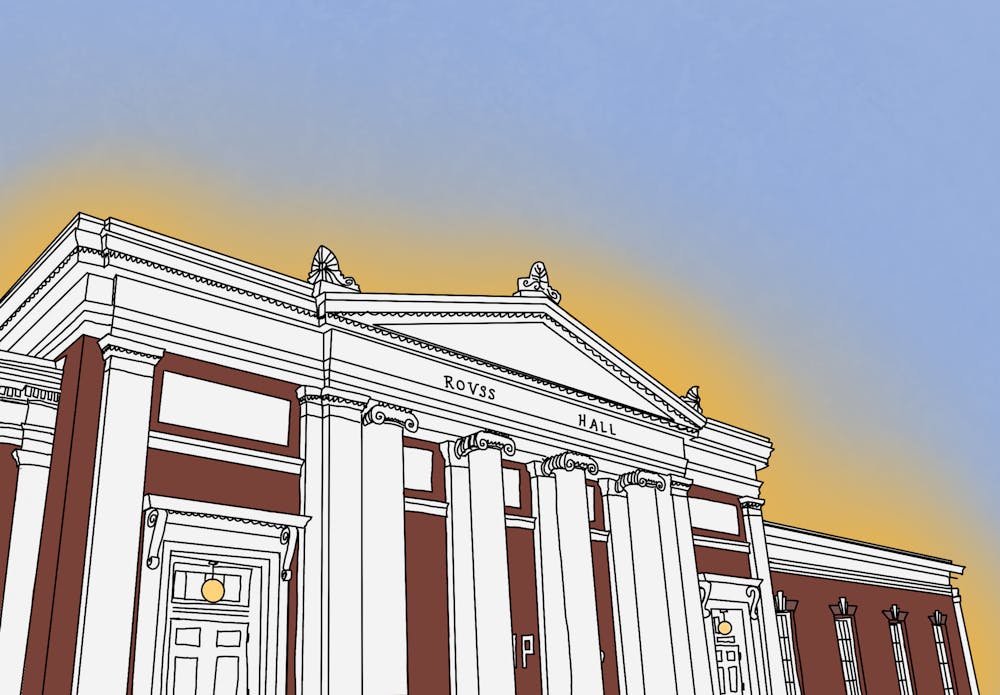For first-year students, applications for the McIntire School of Commerce will open Jan. 29 and close Apr. 30. This represents the first application cycle after Commerce decided to undergo a monumental change in the school’s admissions process — while students used to apply during their second year, they must now apply to the program by the end of their first year. The intended goal of this change is to broaden the scope of information that McIntire can cover by keeping students in the program for an extra year. However, in reality, this change undermines its stated aspirations because it leaves prospective applicants with little time to explore diverse interests before committing to commerce. In this way, the new three-year model is antithetical to the University’s mission to promote a holistic education, instead pigeonholing students into one subject much too early.
To apply to Commerce, applicants must submit a transcript, two video essays and completion of a handful of prerequisite class requirements. While previously, students had two years to compile this information, the new system means that applicants will have half the time to obtain class and extracurricular experiences. Similarly, in the past, the admissions team had an extra semester of data to decide the admissions process, meaning that they could track students’ progress throughout their first and second year. In this way, the new three-year model means that the admissions team will have less information about the candidates and that the candidates themselves will have less University experience. In short, the truncated timeline coupled with the number of requirements will limit the experience reflected in applications and the ability of the admissions team to holistically evaluate candidates.
Additionally, being forced to apply so early will also hurt students’ opportunities to explore their own interests and will impede them from developing the holistic worldview which should be intrinsic to any commerce curriculum. Having to take Intro to Microeconomics, Commerce 1800, a writing requirement and multiple recommended courses while simultaneously completing an application — all in two semesters — essentially traps students in the commerce path without allowing them to explore and gain a cursory understanding of other fields. Consequently, applicants will be coming in with less dynamic transcripts and will likely be less able to understand how commerce interacts with other fields. Even though it is possible for students to take courses in fields besides commerce, the three-year model places unnecessary obstacles in their way and makes them less prepared for a world which is not purely commercial.
In addition to affecting the well-roundedness of applicants, these obstacles inhibit students who may not be naturally inclined towards Commerce from applying. These students will be unable to unearth their interest in Commerce before the opportunity to apply to McIntire has passed. In the former model, students had an extra semester to take a broader array of courses which enabled non-commerce students to discover an interest in the field. In the new three-year model, students are given a far more limited amount of time to take classes, join organizations on Grounds and discover which career path best suits them. Although some students still may not be able to discover this interest in commerce by the application time of the two-year model, the chance certainly increases with an extra semester of classes.
The challenges presented by this change beg the question of why Commerce made this decision in the first place. It is worth noting that this change did not come entirely out of the blue. The majority of top undergraduate business schools in the United States have switched to a new three or four year model within the last few decades to emphasize a more career-oriented education. This change has been made due to the earlier recruiting cycles for internships and job positions in business. Thus, it seems beneficial for the University to follow suit. In reality, however, not only is this change unnecessary to preserve Commerce’s reputation, but it also sets students up for failure in admissions and education.
However, before making this switch, Commerce at the University was still a highly-rated undergraduate program. Despite its previous two-year curriculum, the University remained an attractive target school for employers, likely in part because of the University’s emphasis on a well-rounded liberal arts education. This sort of education, which is only possible through the two-year model, produces students who graduate prepared for their careers with a diversified skill set and the ability to think critically. It is odd at best and hypocritical at worst to standardize a system sought after for this intellectual diversity.
Success in the field of business requires a deep understanding of multiple disciplines. Students pursuing a career in business benefit from gaining an understanding of economics, politics, statistics and many other fields due to the complex nature of the business world. The purpose of a college education is to strengthen one’s knowledge of multiple disciplines in order to utilize this broad understanding and thinking processes to solve problems. By pigeonholing students into commerce so early, the University violates its own mission of providing a holistic education that produces students capable of succeeding in a variety of fields.
Alex Shrauger is an opinion columnist who writes about politics for The Cavalier Daily. He can be reached at opinion@cavalierdaily.com.
The opinions expressed in this column are not necessarily those of The Cavalier Daily. Columns represent the views of the authors alone.







